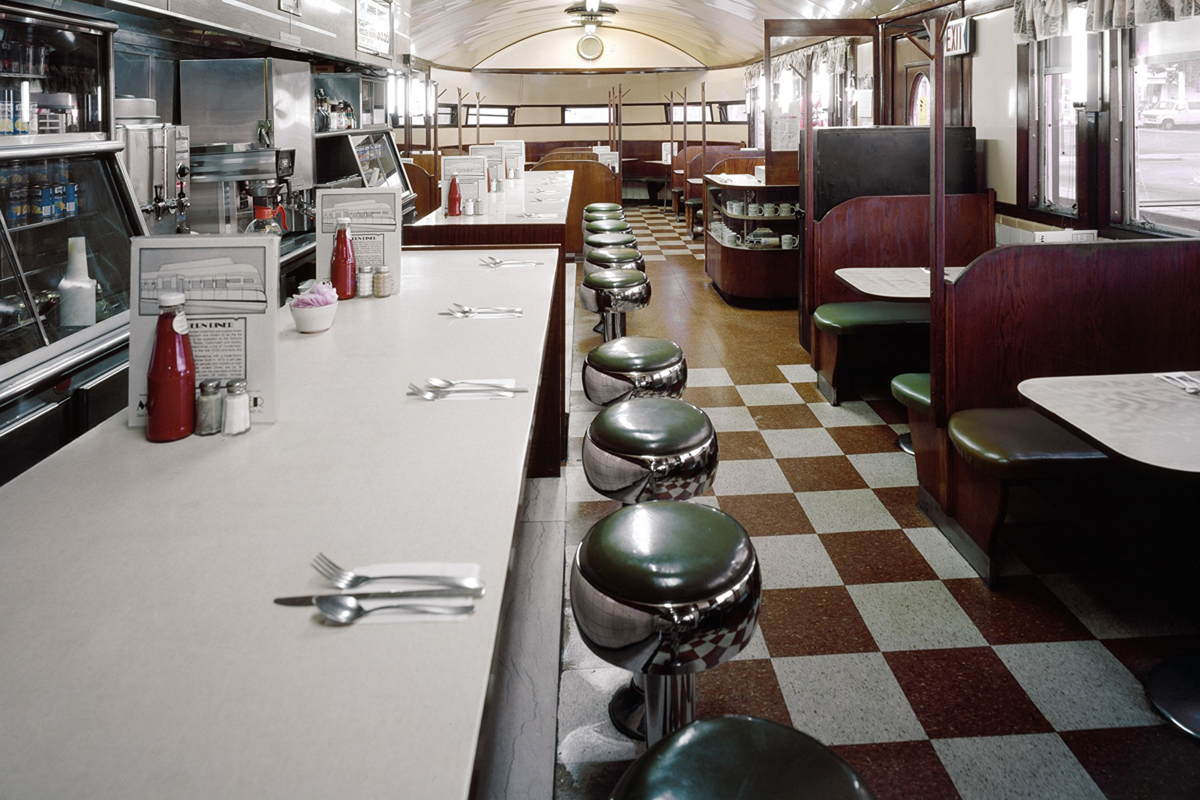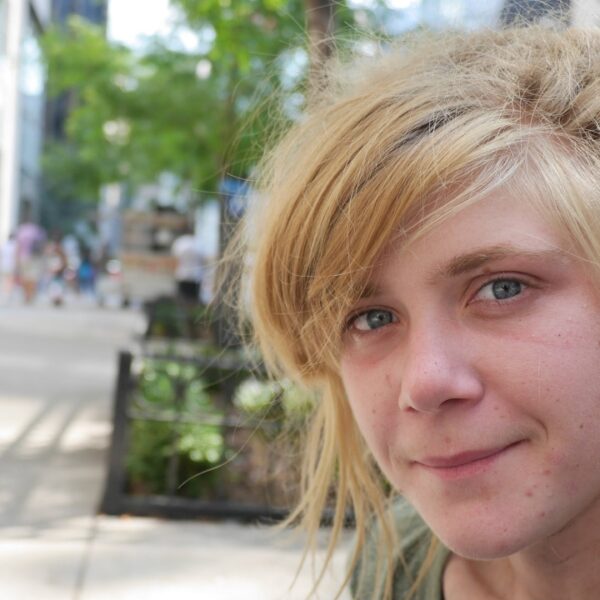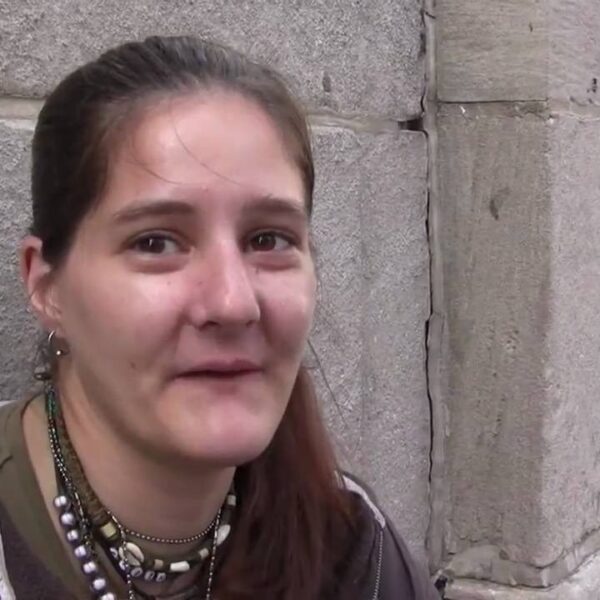I had been homeless for some time, had I but known. Nobody tells you that homelessness is like cancer – that you might not detect it in those early stages, that by the time you can feel it in your bones, chances are … you’re already too late.
I fiddled with the shiny silverware on the table. Thinking. I had been clever up until this point. Or popular. Perhaps the word I seek is lucky. Scratch that. Destined is the phrase I’m fumbling for. I don’t believe in luck. I believe in destiny. If you read my story in its entirety, you will too.
So, there I was in the crowded diner trying to hide my head between the flaps of a laminated menu. I was too humiliated to look up, afraid I’d catch sight of a mirror and not be able to recognize my own reflection. The only thing worse than being unrecognizable to myself was the possibility of being recognized by someone else. The kids at school used to fight over me.
“She’s my best friend. She practically lives at my house.”
“No. She’s my best friend. She practically lives at my house.”
Nobody ever bothered to question why I practically didn’t live at my own house. Including me. When you’re an adolescent making sense of the world, you assume everyone’s secrets are like everyone’s shoes. They may be different in size or shade, but you expect them to be somewhat similar to your own. I looked down for a moment at the shoes I was wearing. They were beige in places where they once were white and the platform wedges were worn on either side. I looked like I was walking on Styrofoam. Lucky for me, my bootcut jeans covered the tops so you’d have to be staring pretty hard to know I was going through something.
The waitresses zipped past me, vacuuming in their pastel pink skirts. They did not acknowledge my presence. I rested my head on the cold pleather booth and realized, for what might have been the first time, that I was genuinely alone.
That it was just me.
Late night.
Street lights.
And Tom Jones.
“Can I take your order?” he asked, clutching his pen.
He was charming, the opposite of pushy, but I could tell he was busy and I had been staring at the menu for too long by now. I was deciding on something that had nothing to do with a meal. I was deciding whether or not to use the payphone one more time. Was there anyone left to call? It was almost 11 p.m. and it seemed to me that the world had finally run short of sofas I was able to sleep upon.
For some time after my couch surfing stint, I had gotten by throwing hotel parties. Technically I wasn’t old enough to rent a room. Didn’t have a credit card or anything, but I had a hookup at the front desk. I’d invite my friends and everyone would chip in. I’d show up early to “host” which is code for shower, shave, use the hotel hairdryer, take advantage of the landline phone with the curly, elastic sounding cord, lay in the bed upside down and do a backflip, stick little colorful butterfly clips in my hair. You know, teen stuff.
But eventually, the parties got too wild. Kids from other schools started showing up, strangers, older guys, unfamiliar faces sipping Mad Dog 2020 out of red bottles. Red tops. Kids falling in and out of K-holes. It was so intense my friends stopped coming. Near the end of that phase, I was left in hotel rooms with complete strangers. These nights were not without incident. My front desk hookup stopped handing me the keys.
There was a song from that era, something about the party being over, the friends being gone. On that particular night, it was like my life decided to sing along.
Suitcase at my feet.
Dark streets.
Me and Tom Jones.
“It’s okay if you don’t know what you want,” he assured me.
I sucked my bottom lip. There would be one last bus before midnight. How far would it take me? How long until that ride, too, would be over. I shoved my hand into the deep pocket of my denim jeans and tugged up my last wrinkled $20 bill.
“I know what I want,” I said. And I wrapped up my silent pep-talk with myself wherein I concluded that the worst thing that could happen was that he said no.
Instinctively, I lowered my voice. “I have $20 but I don’t want any food. I would like to give it to you as a tip and in exchange you let me sleep here in the booth just until the sun rises. Then I’ll go.” I looked down at my rolling suitcase and started to make up an excuse but he cut me off.
“Okay,” he said and tucked his order card into his apron. Maybe it was me, but he looked a little familiar.
As soon as he left, I reached back into my pocket and pulled out my contact case. I can’t sleep with my contacts in. Can’t see without them. My vision is 20/425, making me legally blind whenever I’m not wearing corrective lenses of some sort. My contact case hadn’t been rinsed and the little ridges were starting to look dusty. Inside the case was much worse. There was barely any solution left. The rims of my lenses protruded over the solution when I thrust them into the case. Dry contacts could be painful to put back in, but I’d worry about that later. If I had to, I’d fill the case with water until I could afford more solution.
Sometimes, when life gets hard, sleep comes easy. I remember sinking down deep into the booth, trying to disappear. The diner table smelled oddly reminiscent of a desk so there was this deceivingly familiar feeling of falling asleep in class, of daring to dream in a place where all the signs demand that you learn. Sometime between midnight and dawn, the patrons all paid their bills and hurried home.
All except me.
I slept until three.
Me and Tom Jones.
He tapped my shoulder and frowned, “I’m sorry. My shift is over and my boss says you have to go.”
“Huh?” I answered, only half absorbing the words.
I ripped my beeper from its clear plastic case and checked the time. 3:15 a.m. Staring out into the morning, I saw it was dark as night. I thought the worst thing that could happen was that he said “no” at 11 p.m. when some other stores might have still been open, when there was one last bus to catch. I had drastically underestimated the power of a bad circumstance. There was a worse scenario. And it was this. It was hearing no at 3:15 a.m. when there are no more buses and all the stores have closed.
“I feel really bad about this,” he said. “Can I offer you a ride somewhere?”
I looked down. A ride to where?
“Can I offer you a place to sleep… until the sun rises like you said?”
I twirled my contact lens case open and thrust the dry contacts into my eyes. Ouch. I tried to make out his face, to figure out if I really knew him from somewhere or if he was (yikes!) a complete stranger. I looked again at the sky. It was black on top of black on top of black. I couldn’t bear the thought of trying to sleep out there.
I grabbed my rolling suitcase, took a deep breath, and took him up on his offer. While inside the vehicle, I instantly became more alert. It was like sobering up from the shock of a traumatic event. I glanced over at the driver’s side window and realized I didn’t know the license plate number or the make or model of the car. All I knew was it was red – could’ve been a Corvette might have been a Neon. Familiar landmarks whizzed past. More and more distance settled between me and the places I know. Within a few seconds, I even lost sight of Tom Jones. Through the rearview mirror, Tom Jones grew smaller and smaller, eventually feigning my sight completely.
You see, Tom Jones was the name of the restaurant. I never did catch the charming waiter’s name, whose backseat I was now positioned inside of. I never did bother to ask if I really knew him from somewhere or why he didn’t have me sit up front with him.
The passenger seat was empty. Not even so much as a subwoofer up there. There was no background music playing with which to drown out my fears. The car was a vessel of silence and only the sound of my heart pumping blood to the tips of my fingers and making them hot could be heard. I clenched my teeth and stared at street signs but it was futile. I had no idea where I was or where I was headed.
And I thought to myself, “this is how it happens. This is how teenage girls disappear.”
The car swerved down into a dark back alley. All the houses were connected. This still could have been anywhere. Philly, Darby, Glenolden … My mind rattled off an endless list of places within a 50-mile radius where rowhomes were common. The car jerked to a halt. I hopped out with half a mind to run and half a heart to stay put. Then something happened, something straight out of a Goosebumps novel …
The waiter/driver, who would later identify himself using only a nickname, moved through the shadows as if one with them. When he opened the back door of his house, I caught a sliver of neon green light slip through the tiny crack. I recognized the light immediately and followed him into the house a bit relieved. Low and behold, there in the basement was some wriggling reptile. Every guy my age had one, usually in some sort of blacklight tank that glowed an eerie reptilian green.
You could sort of tell what type of guy by what type of reptile he had in his basement.
Guys who kept iguanas were usually into rave scenes. If he had an alligator, you could almost guarantee he was an avid DMX fan. Lots of guys had lizards, most notably, athletic types. The reptiles grossed me out to be honest, but in this instance, this particular reptile suggested that I wasn’t in a creepy stranger’s basement after all. I was likely just hanging out with a regular teenager.
There was other evidence to suggest this, like the fact that under the diner food smell that seeped into his uniform, there lingered an unmistakable trace of Tommy Hilfiger cologne. His basement walls were lined with rows of Timberlands in every shade. So, he was a neat guy, the kind who took his shoes off before he went upstairs. A long sigh of relief escaped my lips.
“You’re my cousin September’s friend, aren’t you?” he asked, pulling open a dusty black futon.
Aha. So that’s why he looked familiar.
I nodded. He pointed to the futon and tilted his chin upward ever so slightly.
“If you need anything, I’ll be upstairs,” he said.
Then he hit the staircase quickly and I heard every creek that preceded the click of the light switch at the top.
“Great,” I thought. “Now I’m alone again. In the dark, on a futon, in some guy’s basement. He may or may not be September’s cousin.”
I lied down hesitantly. The stairs creaked yet again. Gasp.
“One more thing,” he yelled down. “Do not open that back door for anybody. No matter what.”
After that little word of advice, I ruled out any prospect of sleeping. For the duration of hours before dawn, I did something more like resting, like what wet dough does when it sits beneath a damp cloth overnight. And in the morning, when I rose, my outer shell was much like bread, hard to the touch and rough at the edges. I was a new me.
In the morning, this mysterious cousin of September’s would explain that he was a new Shahada, which is a term used when a person reverts to Islam from a different religion or from no religious background whatsoever. He wanted to help me but he didn’t want to intermingle, which is why he left me alone in the basement and in the back seat of the car. He was doing what he could to try to get his life right, to leave whatever shadows were in his past behind. At the time, I didn’t understand his perspective. Looking back, it all makes perfect sense.
I never got to thank him for that single act of kindness. Rumor has it he was killed in that same alley just a few days after he let me sleep on his futon.
I don’t presume to know the details surrounding his death, nor do I presume the rumor mill to be a reliable source of information. For all I know, he moved away, went to college, started a Fortune 500 company, sailed the world, and lived to tell the tale. Whatever the case may be, intellect would suggest that if anybody was supposed to walk through that alley and never be seen or heard from again, it was probably me.
That’s the thing about destiny. It doesn’t rely on intellect. It holds no regard for mere mortal plans. We all end up where we’re meant to be regardless of our intended destination.
So, there I was in the little city of Chester, PA, pre-9/11, at a time when the religion of Islam was practically unknown, but it was making its way over from bigger places like Philly and DC. It was illuminating the city, like porch lights being turned on in succession. The media would have you believe that Islam came to America by boat, that it flew here on planes, that it was spread by way of brute force. Absolutely none of this is true. And I know. Because I was there.
I was there when the dope boys traded their jerseys in for thobes. I was there when the fly girls started donning long black overgarments, when names became attributes and former members of the Nation started reexamining the sunnah, reestablishing the Masjids. When you couldn’t walk past a tiny street in the city without catching a strong whiff of Amber White or Sandalwood or some other wonderfully scented Muslim oil, I was there. I was there although it was not where I was headed.
Me and my rolling suitcase
In the light of dusk
Me in my worn-down shoes
Me in Egyptian Musk
I didn’t know it at the time but I was already home
Where I was meant to be
Just me
And Tom Jones.
About Tom Jones
Tom Jones is a restaurant in Brookhaven, PA that sits on the cusp of several cities, towns and boroughs located in the Philadelphia suburbs. Decades ago, it was a known adolescent gathering spot due to its strategic location, tasty but inexpensive food, and around the clock service. It is still popular today, but is no longer open 24 hours.
About Me
It’s important that readers understand that I was not practicing, or, in many cases, even aware of the correct practices of Islam during my time living unhoused. Homelessness was part of my journey to Islam. As such, the decisions I made during that time in my life are not reflective of the decisions I might have made if I had been practicing Islam, nor are they reflective of the actions, thoughts, or decisions of any Muslims other than myself. Whatever good you take from my life story comes directly from the perfection of Allah. Anything negative comes from me and is to serve as an example of my flawed human nature.
About My Truth
I’m aware of the fact that my story will likely be filed as a “lived experience” article. While I appreciate the intention behind the phrase, I do not personally view homelessness as an “experience” for I feel that belittles the harsh reality of the situation. Homelessness is, of itself, a tragedy. We do not experience tragedies, we endure them. Some of us are lucky enough to survive them. And those of us who are truly blessed might even live to one day overcome them. Although homelessness was indeed, the dark shadow that led me to a shimmering light of hope, I do not believe it is necessary, particularly in an advanced, wealthy, modern-day society.
Disclaimer: This Autobiographical Piece Has Been Condensed for the Sake of Passing the Information Down
Memoirs can be tricky to tackle because, unlike fictional tales, they consist of countless, infinite details and the writer must be careful to highlight the most important parts. The problem is that the process can be quite subjective. The pieces of my story that I find important might not be the same if someone else had lived through it. In order to tell the story in its entirety, with complete accuracy, I would need years, decades, perhaps even lifetimes to write it and you would need just as long to read each painstakingly written word. For the sake of passing down what I feel is vital information about real-life homelessness, I have given you a flashlight into that world. I have shined that flashlight on the parts I thought were most imperative for enhancing the general public’s understanding.













